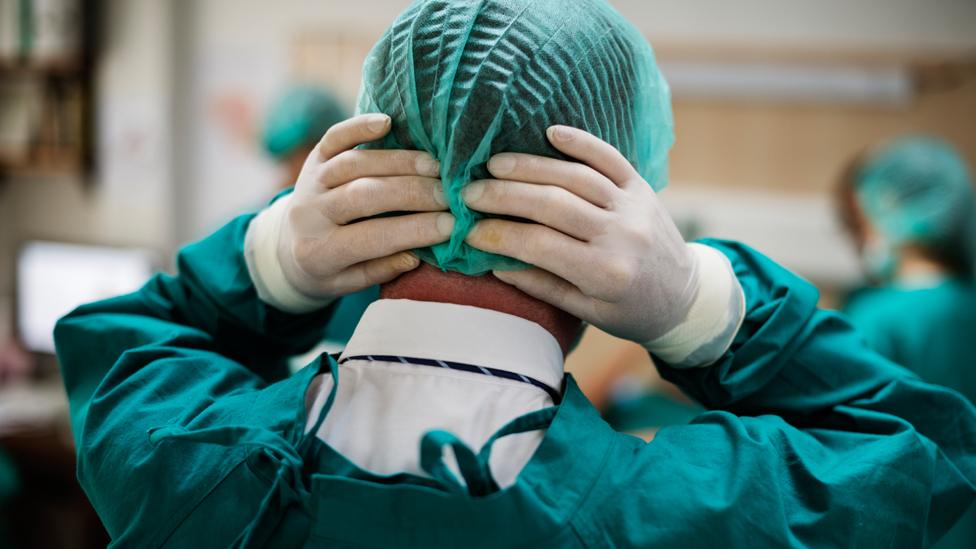Medical student shortfall looms in Northern Ireland
- Published
- comments
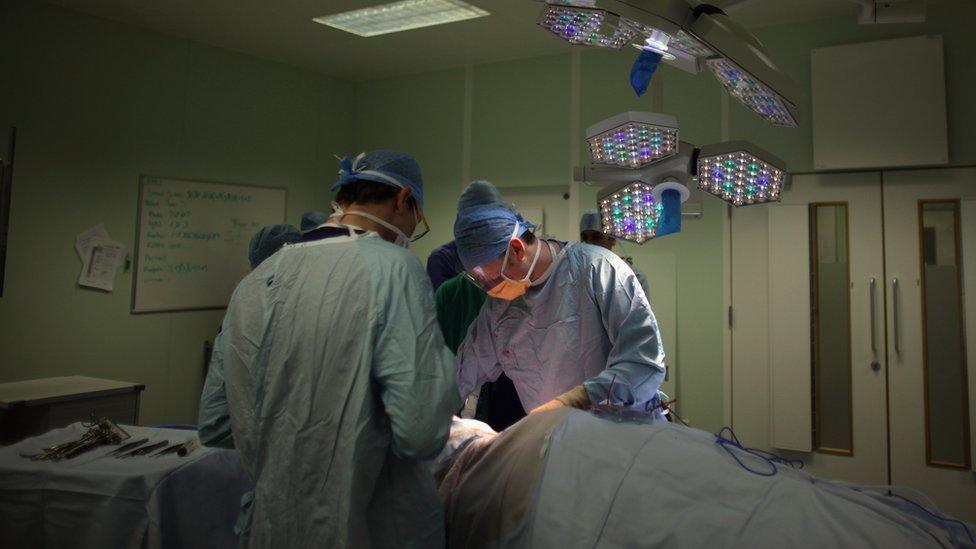
Northern Ireland needs at least 100 more medical students a year to meet the increasing demand for doctors.
That is one of the key findings of a review commissioned by the Department of Health (DoH).
However, the department said expanding student numbers to that extent would cost £30m a year and see services cut.
That response, and the lack of a health minister, casts doubt on a new medical school at Ulster University's Magee campus opening in the near future.
In a statement Ulster University (UU) and Queen's University Belfast (QUB) said they "welcome the recommendations contained within this report".
The statement added that vice chancellors of both institutions requested a meeting with the permanent secretary "to discuss a collaborative approach" to expanding medical school provision.
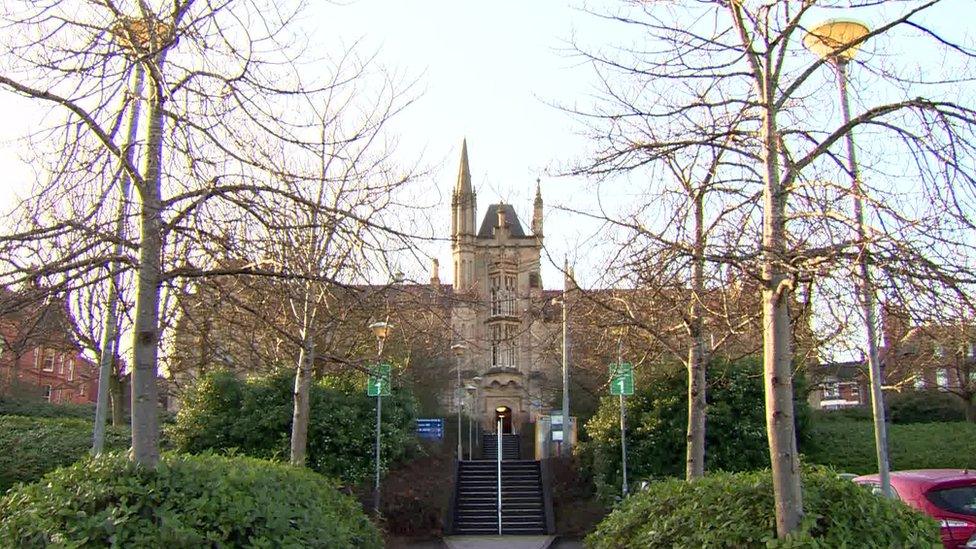
The Magee campus is on Derry's Northland Road
The review of medical school places was led by Professor Keith Gardiner, chief executive and dean of the Northern Ireland Medical and Dental Training Agency.
Its aim was to determine how many medical student places are needed in Northern Ireland to ensure an appropriate number of doctors in future, and was delivered to the DoH in August 2018.
The only medical school in Northern Ireland is based at QUB.
It admits 271 medical students each year, with 236 places for students from the UK and EU funded directly by the DoH.
In 2017, 190 of those 236 funded places were filled by students from Northern Ireland.
Plans in doubt
UU had previously announced plans for a new graduate medical school at its Magee campus in Londonderry, which would admit 60 students initially.
But the opening of the school has so far been postponed.
The DoH-commissioned review found that there are 6,142 doctors in Northern Ireland, with 3.29 doctors for every 1,000 people - a higher ratio than Wales but lower than England and Scotland.
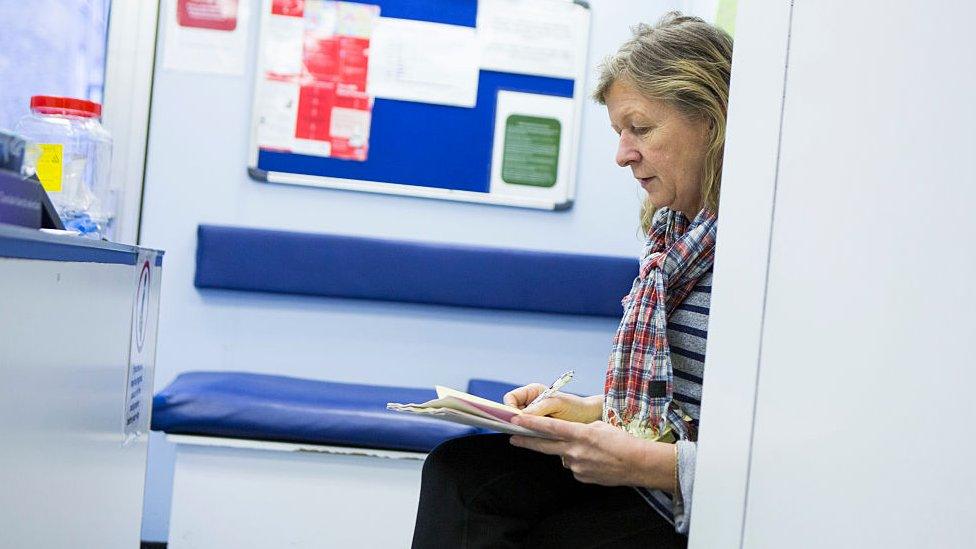
There has been an increase in the number of doctors in Northern Ireland since the year 2000.
For instance, there was a 38% rise in the number of consultants between 2007 and 2017 - from 1,250 to 1,736.
However, the review said: "There remains a shortage of doctors working in permanent positions" as GPs, non-consultant doctors and consultants.
"There are areas within NI, where it is difficult to attract doctors to work and train."
QUB and UU said they are "already working in partnership in other projects" related to health, but believed further integration could help address the review's recommendations.
Increase in need
The review also estimates that, due to people living longer and increased demand on the health service, there will need to be a 50% increase in the number of consultant doctors over the next 15 years.
That will mean more than 1,000 more consultants will need to be in place in Northern Ireland by 2033.
Prof Gardiner's review does not specifically comment on Ulster University's proposal for Magee, but it said that Northern Ireland was particularly dependent on QUB graduates for its medical workforce.

However, it recommended that the department should increase the number of medical school places it funds from 236 to at least 336 a year "as soon as possible, preferably by September 2019".
It also said 70 of these places should be for graduate entry students on an accelerated medical degree programme.
In his response to the review, the DoH permanent secretary Richard Pengelly said that providing that number of extra places would be financially difficult and would need decisions from health, economy and finance ministers.
"The expansion in medical student numbers indicated by this report could cost up to an additional £30m per year - funding which would have to be found by making reductions in other areas of the health service," he said.
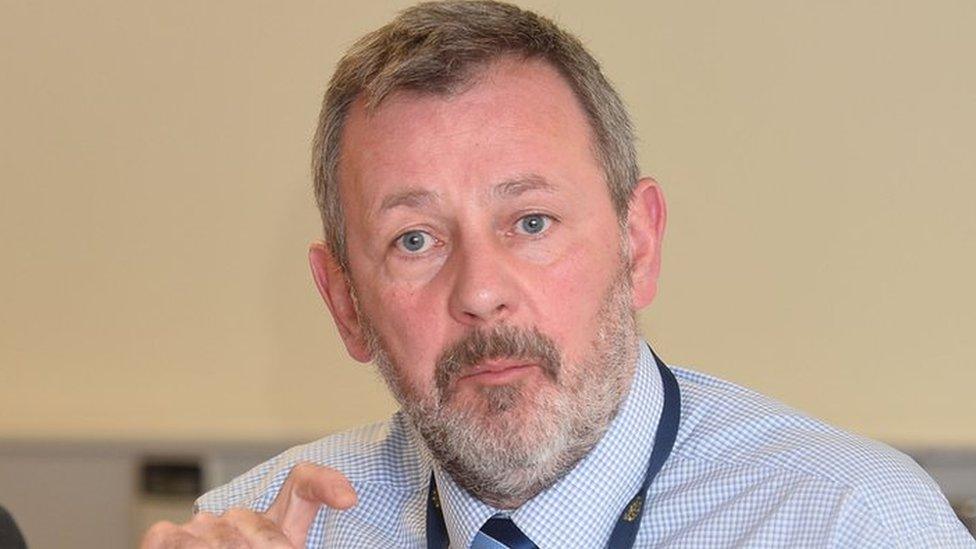
Richard Pengelly is the permanent secretary at the Department of Health
"This report raises long term, strategic and cross-cutting questions with major financial implications which will require decisions by ministers."
Prof Gardiner's review also said that 445 medical school places a year may ultimately be needed to ensure an appropriate number of doctors by 2033.
It stated that increasing the number of medical students, though, would not address the shortfall in doctors in the near future.
That is because a medical degree normally takes five years, followed by a two-year foundation training programme.
Only after that do doctors begin to work as GPs or specialists.
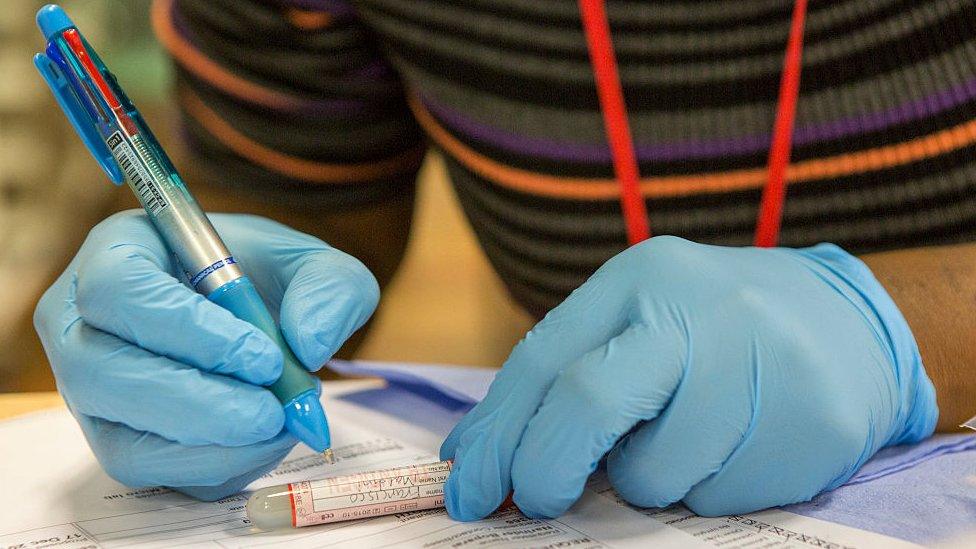
"The impact of any additional funding of medical school places will not occur until between 2029 and 2036," the review stated.
"The DoH should not rely on increasing the number of medical school places in NI as the only mechanism to deal with the shortfall in the medical contribution to the workforce in NI."
Academic shortfall?
The review also expressed concern about whether there were currently enough academics and training places to cope with any increase in the number of medical students.
The DoH said it would take forward some of the review's other recommendations including attempting to attract more doctors to come to work in Northern Ireland - including those from here who had gone elsewhere to do medical degrees.
The department also said it would increase the number of clinical academics, deliver more training opportunities for medical students and promote medical careers to young people.
- Published8 November 2018
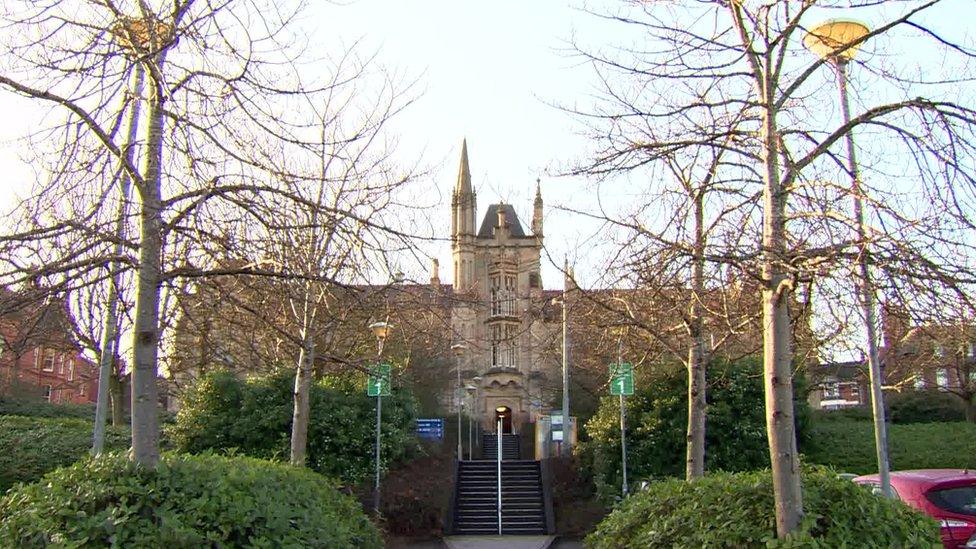
- Published11 September 2018
